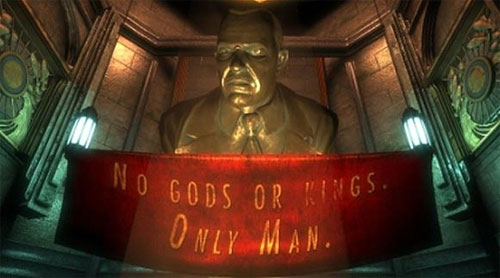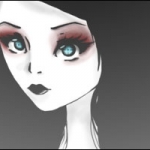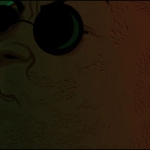
Not to be a downer, but get ready for a month full of civilization gone bad. We’re launching into April with a celebration of dystopian fiction, all about the ways humankind’s best laid plans can go awry.
The word “dystopia” comes from Ancient Greek, roughly translating to “bad place.” In fiction, dystopias tend to be the settings for cautionary tales about societal oppression, totalitarianism, and excess leading to the downfall of humanity. Thomas More wrote his book Utopia in 1516, marking the first known use of that word. In 1868, British philosopher John Stuart Mill flipped the word around in a speech to the House of Commons, coining the word “dystopia.”

Dystopias are popular in literature, surfacing in Ray Bradbury’s Fahrenheit 451, Margaret Atwood’s The Handmaid’s Tale, and Ayn Rand’s Atlas Shrugged, to name just a few. It would carry over into other popular media with movies like The Matrix, TV shows like Dark Angel, and video games like BioShock. We’ll be taking a look at the dystopian genre this month with new articles and reviews. To start things off, though, here’s a look back at some of our previous articles about dystopian fiction:
- Defining the Genre: Utopia and Dystopia
- List of the Top 10 Fictional Revolutions
- Book Review: Yarn
- Comic Review: Do Androids Dream of Electric Sheep: Dust to Dust #1
- Movie Review: Repo Men
- Movie Review: Daybreakers






